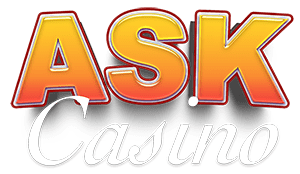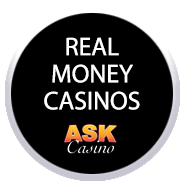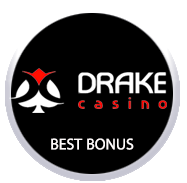Your Guide to Echeck Casino Sites
Are you looking for a reliable and secure way to deposit at an online casino? An echeck could be the ideal option! Read on to learn all about echeck casinos, including how they work and which sites offer them.
An echeck is one of the most popular payment methods available today. It’s fast, easy and it’s also trusted by many players around the world. With this method, you can easily transfer money directly from your bank account into your chosen casino site. Plus, there are no fees or delays associated with using an echeck – so you can get playing right away!
As well as providing detailed reviews of each individual casino, we’ll also cover more general topics such as what exactly an echeck is and why it’s becoming increasingly popular among online gamblers. So keep reading if you want to find out more about echecks – and discover which casinos accept them!
Overview of eCheck
A reliable, risk-free payment method, eCheck is an increasingly popular choice for casinos. Allowing players to securely deposit and withdraw funds from their online casino accounts with a few clicks, this electronic check system offers simplicity and convenience.
eChecks are accepted by many top online casinos as a safe and secure way to move money into or out of your gaming account. With its low processing fees, quick turnaround time, and unparalleled security features, it’s no wonder why more people are turning to using eChecks for their online gambling needs.
Players can easily sign up for an eCheck account in minutes without ever having to provide sensitive personal information like credit card numbers or bank details. Once registered, users will be able to instantly transfer funds directly between their checking accounts at any participating financial institution within the United States or Canada. Players can then use these funds to make deposits and withdrawals at all major online casinos that offer this convenient payment option. With such ease of use, it is no surprise that so many gamblers prefer using eChecks over other traditional methods of transferring money.
The next section discusses the advantages of using echeck for casinos
Advantages Of Using Echeck For Casinos
Echeck casinos provide an efficient and secure way for gamblers to play online. With eCheck, players can make deposits quickly and securely without the hassle of entering credit card details or using bank transfers. This article will discuss some of the advantages of using eCheck at a casino.
The first advantage is security. When making payments with eChecks, all information is encrypted, meaning that no one else has access to it. Players can also be rest assured that their transactions are safe and secure as they are protected by banks’ fraud prevention measures. Additionally, eChecks are regulated by federal law, so players have additional protection if something goes wrong with their transaction.
Another benefit of using eCheck for casinos is convenience. The process only takes a few minutes from start to finish: you simply enter your checking account information into the system and follow the instructions on screen to complete the payment process – it couldn’t be easier! Plus, the funds usually reach your casino account almost instantly once approved; this means you don’t have to wait long before playing your favorite games.
Lastly, many casinos offer rewards for those who use eCheck for deposits. These include bonus offers such as cashback deals or free spins on slots games – giving players even more value for their money when playing at an online casino site!
Using eChecks at a casino comes with plenty of benefits, including improved security, convenience, and great rewards opportunities. For these reasons alone, it’s no wonder why many gamers prefer this deposit method over other options available today! Additionally, for those looking for an alternative payment method, the best Paysafecard casinos also offer a secure and convenient way to enjoy online gaming while protecting your financial information. These casinos provide a seamless experience for players who value privacy and ease of use, making them another excellent choice for gaming enthusiasts.
Disadvantages Of Using Echeck For Casinos
The convenience and speed with which money can be transferred via an echeck is a major draw, but there are also potential cons that should be considered. While some may not outweigh the benefits, it’s important to understand the risks associated with using this payment method at casinos.
One disadvantage is that there may be certain costs associated depending on your financial institution or the casino itself. Some fees may apply when making deposits or withdrawals from online gambling sites, so it’s a good idea to check before you start playing.
In addition, while many transaction times are very fast, they aren’t always instant like other methods such as credit cards or digital wallets. This means if you need urgent access to funds in order to play, then echecks won’t necessarily provide the quickest solution.
Overall, these drawbacks shouldn’t put off anyone looking for reliable ways to transfer money securely when playing at online casinos. However, understanding all the possible risks involved is key for making informed decisions about how best to manage your finances when gambling online. With this knowledge in mind, let us now look at security and safety considerations for echeck casinos.
Security And Safety Considerations For Echeck Casinos
When it comes to online casinos, security and safety considerations are essential. With the use of an echeck payment method, players can rest assured that their personal information is kept safe from any potential threats while they enjoy gaming at their favorite casino. To ensure a secure gaming experience, here are some important safety measures to consider when using echecks at online casinos:
Verify Reputation of Casino Sites
Before making any deposits with your echeck, make sure you do your research on the reputation of the casino site you will be playing on. Check reviews and read up on the history of the casino’s customer service and security protocols. You should also look into their banking methods – such as whether or not they accept echecks – to ensure that all payments go through securely.
Ensure Secure Connection/Encryption Technology
Make sure that the casino has implemented secure connection (SSL) technology and encryption standards in order to protect your private data from being intercepted by third parties. This includes verifying that all transactions take place within a protected environment such as “https†instead of just “http†before entering your financial details during checkout. Also confirm if there are other authentication steps in place like two-factor identification or PIN codes for extra protection against fraudsters.
Read Terms & Conditions Carefully
It is always best practice to read through the terms & conditions carefully before signing up or depositing funds with any casino so you know what you’re getting yourself into. Pay attention to withdrawal limits, fees associated with different payment methods, as well as timeframes for processing transactions–all this information could affect how quickly you receive money back after cashing out winnings from your account. Additionally, double check which countries are accepted at these sites since some may restrict certain regions due to legal regulations surrounding gambling activities.
By following these tips above when considering an echeck deposit at an online casino, players can safeguard themselves against potential scams and fraudulent activity while enjoying a fun and stress-free gaming experience! Knowing about these security measures lets players relax knowing their accounts remain secure throughout their session at the casino tables.
How To Make An Echeck Deposit At An Online Casino
Making an echeck deposit at an online casino is like a well-oiled machine. The process, while simple and straightforward, requires some steps to make it run smoothly.
Verifying Your Account
Before you can make an echeck deposit, you’ll need to verify your account with the online casino. This involves providing documents such as a valid driver’s license or passport for identity verification purposes. Once these documents are submitted and approved by the casino, you will be able to start making deposits using echecks.
Using Echecks to Deposit
Once your account is verified and ready for action, depositing via echeck is easy:
- Login to your online casino account.
- Go to the Banking section of the website.
- Select “Echeck†from the list of payment options.
- Enter in all required information regarding your bank account (name on account, routing number, etc).
The funds should appear in your player balance within 24 hours after submitting your request. You may also be asked to provide additional documentation once you submit the transaction before it can be processed.
To wrap up this section, if you’re looking for a convenient way to get money into your online gambling accounts without having to worry about fees and delays, then echecks could be just what you’re looking for! Withdrawal options at echeck casinos are discussed next…
Withdrawal Options At Echeck Casinos
Now that you know how to make an echeck deposit at a casino, it’s important to also understand the withdrawal options available with this payment method. Withdrawing money from your online casino account using echecks is just as simple and secure when done properly. This section will provide an overview of what withdrawal options are available at most echeck casinos, the safety of these transactions, and tips on finding the best echeck casino for your needs.
What Withdrawal Options Are Available?
Most online casinos offer two main methods of withdrawing funds via echeck; direct bank transfer or paper check delivery. When choosing either option, be sure to double-check that all banking information provided is accurate and up-to-date before submitting any requests. The time frame for processing withdrawals can vary depending on both the casino’s policies and your chosen bank.
| Method | Description | Time Frame |
|---|---|---|
| Direct Bank Transfer | Money is transferred directly into player’s checking/savings account linked to their casino account. | 1 – 7 business days |
| Paper Check Delivery | Casino sends physical check to player’s mailing address registered with their account. Can take longer due to mail delivery times. | 5 – 14 business days (depending on location) |
Is Echeck Safe For Withdrawals?
Yes! All financial transactions conducted through an online casino must adhere to strict privacy regulations set forth by regulatory bodies such as Malta Gaming Authority or Gibraltar Gambling Commission – ensuring players’ data remains safe and confidential throughout their gaming experience. Additionally, many sites employ state-of-the art SSL encryption technology which further safeguards against any third party interference in personal banking details saved within accounts. These measures ensure the security of both deposits and withdrawals made via echeck at any reputable casino site today.
Finding The Best ECheck Casinos
Choosing the right echeck casino for your individual needs does not have to be complicated process; simply look out for key features such as game variety, customer service availability, licensing & certifications, bonus offers, payouts & jackpots etc., in order to find one that meets your specific requirements and preferences perfectly! Make sure to read reviews from other users prior signing up so you can get a better understanding of each platform’s performance ratings across different categories – helping narrow down choices until you settle on the best match for you!
Finding The Best Echeck Casino
The thrill of gambling can be exhilarating. But finding a great echeck casino to play at? That’s an even more exciting prospect. With so many online echeck casinos offering different bonuses and rewards, it can be hard to decide which one is best for you. That’s why we have compiled this guide on how to find the best echeck casino reviews.
One way to start your search is by looking through various echeck casino bonus offers that are available. Different online sites offer varying levels of bonuses and loyalty programs, making it important to read up on what each site has to offer before signing up or playing with real money. It is also recommended to look into customer feedback regarding their experiences at certain casinos in order to determine whether they are worth joining or not.
Another tip when searching for the right echeck casino is researching any terms and conditions associated with specific games or promotions offered by the site. It is essential that players understand all rules and regulations prior to participating in any activity that could potentially put their funds at risk. Additionally, verifying if there are any special requirements needed such as minimum deposits or withdrawal limits should also be taken into account when selecting an ideal destination for gaming enjoyment.
Choosing an excellent echeck casino can make all the difference between having a positive experience and ending up disappointed with lackluster results – so take time doing due diligence now for greater rewards later! Onwards then towards learning about all the benefits and rewards offered by these establishments…
Benefits And Rewards Offered By Echeck Casinos
Having discussed the best echeck casinos, it is now time to look at some of the benefits and rewards offered by these gambling sites. When players use an echeck casino, they can enjoy a variety of perks that make playing online easier and more enjoyable. Read on to learn more about the different rewards available when you play at one of these top-notch websites.
eCheck Casino Bonuses
A major benefit of playing at an echeck casino is the availability of bonus offers for new and existing customers alike. Most sites offer welcome bonuses for first-time deposits as well as loyalty programs with additional incentives such as free spins or cashback opportunities. In addition, many echeck casinos also provide exclusive promos specifically tailored to those using this payment method. Before taking advantage of any bonus offer, however, be sure to read through all terms and conditions carefully so you understand what’s required in order to redeem your reward.
Rewards Possibilities
When playing at an echeck casino, there are plenty of other potential rewards too! Many operators have VIP clubs which allow members access to special events, tournaments, giveaways, and even cash prizes. Additionally, several gaming sites feature leaderboards where players can compete against each other for extra points or money if they finish in the top spots. On top of this, certain platforms may also offer referral bonuses when inviting friends or family members to join their favorite site.
Thus far we’ve discussed various benefits and rewards offered by echeck casinos – but before making a deposit always prioritize responsible gaming habits! Our next section will focus on tips for staying safe while enjoying real money games online.
Responsible Gaming Tips when Playing at an Echeck Casino
Playing responsibly is of utmost importance when gambling, especially online. To ensure you have the best experience possible while playing at an eCheck casino, it’s important to stick to these responsible gaming tips:
Set Limits for Deposits and Time Spent Gambling
Before depositing money into your account via eCheck or any other payment method, decide on a budget and set limits for both deposits and time spent playing. It’s also advisable to keep track of how much money you are spending as well as the amount of time you are devoting to gambling. This will help ensure that everything stays within reasonable limits.
Don’t Chase Your Losses
Gambling can be unpredictable and losses should always be expected. If luck isn’t with you during one session, take a break rather than trying to win back what has been lost. Chasing losses can lead to bigger problems down the line if not kept in check.
Seek Professional Help If Necessary
If the urge to gamble becomes too strong, seek professional help before things spiral out of control. There are plenty of resources available online specifically designed for problem gamblers looking for support and assistance in getting their lives back on track.
With these responsible gaming tips in mind, players should feel safe while using eChecks to deposit funds into their accounts at an eCheck casino. Understanding the risks associated with gambling helps make sure everyone enjoys their experience without going overboard or overspending – taking all precautions necessary for a fun and secure time!
Faqs On Echeck Casinos
As the popularity of eCheck Casinos continues to grow, so too does the need for reliable and comprehensive information about them. This section will provide answers to some frequently asked questions (FAQs) about eCheck casinos, such as how they work, their safety measures, deposits and withdrawals.
How Do Echeck Casinos Work?
An eCheck casino is an online gaming site that accepts payments via electronic check. An eCheck works similarly to a paper check – when you make a deposit using this method, your bank account information is processed and verified by the casino before funds are transferred into your account. It’s important to note that while most banks allow players to use eChecks at online casinos, some banks may have restrictions or limitations on this form of payment due to local laws.
Are Echeck Casinos Safe?
Yes! Many reputable online casinos offer secure banking solutions like eChecks which protect player’s personal data through encryption technology and other security protocols. Additionally, many of these sites employ third-party auditors who regularly verify game fairness and randomness. All in all, making deposits with an eCheck remains one of the safest ways to fund your casino account.
Echeck Casino Deposits & Withdrawals
When it comes to depositing money into your casino account via an electronic check, the process is simple: just fill out the necessary fields on the cashier page, enter your bank details including routing number and account numbers and submit it – typically within minutes you should see funds credited in your balance. As far as withdrawing winnings from an eCheck goes, it can take up to several days depending on various factors such as processing times of both banks involved in the transaction etc., but ultimately it shouldn’t take more than 7 business days once initiated.
It’s also worth noting that some casinos may charge fees when using certain methods like credit cards or eChecks; be sure to read any terms associated with each option prior to selecting one for deposits/withdrawals as there could be additional charges related thereto.
Frequently Asked Questions
How Quickly Will My Echeck Deposit Be Processed?
When it comes to depositing money into an online casino account, there are many options available that provide users with a fast and secure way to get their funds in. One such option is the eCheck deposit method, which allows players to make quick payments directly from their bank accounts. But how quickly can you expect your eCheck deposits to be processed?
In most cases, when making an eCheck deposit at a reputable online casino, the processing time for this type of transaction tends to be quite speedy. The amount of time it takes for the payment to go through depends on several factors including the speed of the casino’s banking system as well as any applicable regulations related to handling financial transactions. Generally speaking, however, players who use eChecks should expect their deposits to be processed within a few minutes or hours depending on where they’re playing.
Benefits of Using Echecks
Using eChecks has numerous benefits compared to other payment methods:
- Easy setup – Setting up an eCheck requires just a few simple steps.
- Secure – Payments via eChecks are highly secure due to encryption technology.
- No fees – Many online casinos don’t charge extra fees when using this method.
- Instant verification – Your identity will be verified instantly when you use this payment method.
Given its convenience and security features, it’s no wonder why so many people choose to make their casino deposits via eCheck. Not only does it save them time but also ensures that their personal information stays safe while providing them with easy access to the games they want to play.
Are There Any Fees Associated With Using Echeck For Casino Deposits?
Making an echeck deposit at a casino can be a great way to get your gaming account funded quickly, but it’s important to know what fees you may incur when using this payment method. Luckily, most online casinos do not charge any additional fees for deposits made with echecks – meaning that players who use the service won’t have to worry about added costs eating into their bankrolls. However, it is always best practice to double check with the individual casino before making any deposits or withdrawals as policies can vary depending on the operator.
When looking at general industry trends in regards to echeck payments, we find that many of today’s top casinos offer fee-free transactions for both deposits and withdrawals. As such, those looking to make an echeck deposit should have no trouble finding an establishment which will allow them to take advantage of this convenient payment option without having to pay extra fees along the way. Furthermore, some operators even reward users who choose to use this method by offering special bonuses for each transaction – so be sure to keep an eye out for these promotions!
Whether you are playing slots, table games or live dealer titles, being able to fund your account securely and without paying hefty fees is key if you want to maximize your time spent gambling online. Echeck payments provide players with one of the safest methods available while also delivering speedy processing times in comparison with other types of banking options. So why not give this reliable system a go next time you’re topping up your balance? You just might be surprised at how easy and cost effective it can be!
Is My Personal Information Safe When Making Echeck Deposits?
When making any kind of financial transaction, it’s important to know that your personal information is secure. This is especially true when it comes to deposits made using eCheck at online casinos. But are these transactions safe and how can you ensure the privacy of your data?
What is Echeck?
Echeck, sometimes referred to as an electronic check or ACH payment, is a method of transferring funds electronically from one bank account to another. It’s been around for decades but has become popular in recent years with the rise of online gambling. The process works by entering your banking details into the casino’s software which then creates a virtual version of your paper check – this means that no physical checks need to be sent through the mail.
Is My Personal Information Safe When Making Echeck Deposits?
The good news is that yes, eCheck deposits are considered very secure because all sensitive data such as bank account numbers and routing numbers are encrypted before being transmitted over the internet. Additionally, many casinos use SSL encryption technology which adds an extra layer of security for users. Casinos also have policies in place to protect customers’ private information so there’s little risk involved when depositing via eCheck.
It should also be noted that most reputable casinos will require players to verify their identity prior to processing payments with eChecks – this helps reduce fraud and further protects customer data. So if you’re looking for a secure way to make online casino deposits, then eCheck may be just what you’re looking for!
How Do I Withdraw Winnings From An Echeck Casino?
When playing at online casinos, knowing how to withdraw your winnings is key. Withdrawing from an echeck casino is no different than any other type of online gambling platform – you just need to know the steps. Here’s everything you need to know about withdrawing your winnings from an echeck casino.
The first step when it comes to withdrawing money from an echeck casino is determining which method works best for you and understanding what fees may be associated with each withdrawal option. Generally, there are two main methods available: direct bank transfers or checks sent by mail. While both will allow you to receive your funds quickly, they come with different advantages and disadvantages that should be considered before making a decision on which one is right for you.
Once you have determined the method that works best for you, the next step is to make sure all of your information has been entered correctly in order to ensure a smooth transaction. This includes verifying your identity with documents such as a valid driver’s license or passport, as well as providing banking details if necessary. It’s also important to keep track of any applicable fees associated with cashing out, including processing times and minimum deposit/withdrawal amounts.
After all of these steps have been completed, it’s time to submit your request for withdrawal! The process will vary depending on the specific payment processor used by the casino so make sure to read up on their policies beforehand in order to avoid any potential hiccups along the way. However once this final stage is complete, it shouldn’t take too long until those winnings show up in either your checkbook or bank account – whichever method was chosen!
- Direct Bank Transfers
- Verify Identity (ID)
- Provide Banking Details
- Checks Sent By Mail
- Fees May Apply
- Processing Times Vary
Can I Use Echeck To Withdraw From An Online Casino In A Different Currency?
Are you looking to withdraw your winnings from an online casino using eCheck but in a different currency? Navigating the world of online banking can be tricky, so if this is what you’re after then don’t fret – we have you covered!
It’s worth noting that echeck is one of the most secure payment options available for making transactions and withdrawals at an online casino. It allows players to deposit funds directly into their account without having to worry about divulging sensitive financial information. As long as you find an online casino that offers echeck services, it should be relatively simple to make a withdrawal in any given currency.
When selecting an eCheck-friendly casino, however, there are some things you need to keep in mind: firstly, check out the range of currencies accepted by the site; secondly, ensure they support your preferred method of payment; thirdly, read up on the fees associated with transferring money between accounts – these can vary depending on which platform or service provider you choose. Additionally, look into minimum withdrawal amounts and processing times too.
Finding the right online casino for withdrawing winnings via eCheck isn’t necessarily rocket science – just make sure you do your research thoroughly beforehand. That way, when it comes time to cash out those big wins, everything will go off without a hitch!
Conclusion
eCheck is an incredibly reliable and secure option for depositing funds into your favorite online casino. It offers fast processing times, low fees, and keeps your personal information safe from third-party access at all times. Withdrawing winnings with eCheck is just as easy, regardless of the currency you’re dealing in. I’d highly recommend it if you’re looking for a quick and secure way to manage your transactions while playing at any online casino!
Pros:
- Fast processing time.
- Low fees associated with deposits.
- Secure method that protects sensitive data.
- No issues withdrawing winnings in different currencies.
In conclusion, if you are looking for a fast and secure payment option when gambling at an online casino, then look no further than eCheck. You can trust that this electronic check system will provide you with both convenience and peace of mind when making deposits or withdrawals at an internet casino.
Related Pages
James Reynolds Johnson is a seasoned expert in the world of online casinos. With over 10 years of experience in the industry, James has a wealth of knowledge about the latest casino games, trends, and technologies. He has worked with some of the top online casinos in the world, providing expert analysis and advice on everything from game selection to payment methods. James is passionate about helping players find the best online casinos that offer fair games, excellent customer support, and generous bonuses. When he's not writing or researching, James enjoys playing blackjack and poker.
Trevor Blacksmith, Chief Editor at Ask-casino.com, has dedicated over 15 years to the online casino industry, ensuring readers receive accurate and current information. Based in New York, Trevor's meticulous approach and extensive experience make him a trusted voice in the realm of digital gambling, upholding the highest standards of journalistic integrity.




